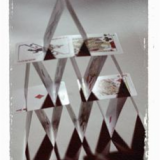Knock down the house of cards.
On August 23, 2013 a judge of the Supreme Court of BC held that when opinion evidence is introduced into court the factual underpinnings upon which the opinion is based must be proven, otherwise the opinion evidence is of no value. In Paller v. Regan, 2013 BCSC 1672, the plaintiff was injured in a 2009 collision. ICBC admitted the defendant was at fault but disputed the collision caused any injuries. In support of their position they relied on an orthopaedic surgeon who never examined the plaintiff but provided an opinion that it was “unlikely” the plaintiff’s injuries were caused by the...
read moreOne judge’s clarity is another’s ambiguity.
On June 4, 2013, the BC Court of Appeal reversed a trial decision in McLean v. Canadian Premier Life Insurance, 2013 BCCA 264,and in an unanimous decision allowed the appeal and held that the insured was entitled to the $1 million benefit provided by the policy. The McLean appeal decision is an interesting example of how one judge’s clarity is another’s ambiguity. The trial judge found that “the words of the contract are clear and unambiguous” and held that the loss did not come within the policy terms. Specifically, holding that at the time of the loss the deceased insured was not a...
read moreNew Client Contact Information
Name _______________________________________________________________________________ Street Address _______________________________________________________________________ City _________________________________________ Province ______ Postal Code _____________ Phone (home) __________________ (mobile) ___________________ (office) ____________________ Email _______________________________________________________________________________ Date of Accident ____________________________ Type of Accident (check one) [ ]Motor Vehicle Accident [ ]Slip and Fall [ ]Other Injuries...
read moreInsurer who honours policy may still breach the duty of good faith.
On February 25, 2013, the Ontario Court of Appeal substantially allowed an appeal from a lower court decision striking out numerous claims in a proposed class action relating to the sale and administration of four types of life insurance policies. In Kang v. Sun Life, 2013 ONCA 118, the Court of Appeal held that plaintiffs’ claims for breach of duty of good faith and fair dealing and for deceit and fraud were not mere reiterations of the plaintiffs’ claim for negligent and fraudulent misrepresentation and should be allowed to stand. Their claim for breach of contract was based on...
read more







